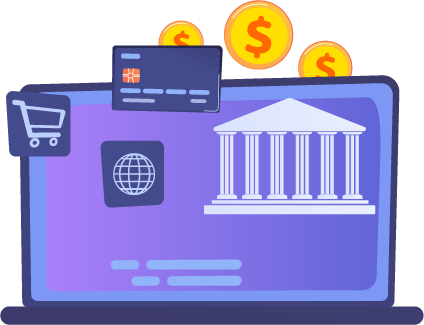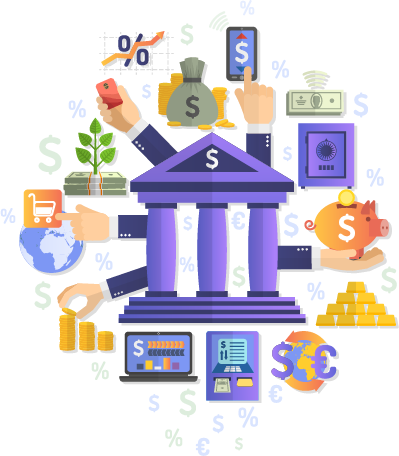Training for BFSI
Digital transformation will drive crucial alterations in how financial institutes perform and provide value to their clients. Banks that attempt this transformation can anticipate reduced expenditures and facilitated processes. This integration also assists in providing a more hassle-free and engrossing customer understanding. Digital transformation implies more than technological adjustments; it influences everything from customers, employees, products, services, and procedures. Presently in India, there is raised spending on infrastructure, fast enactment of projects, and persistence of banking reforms. These are anticipated to furnish impetus to the development of the industry as a total. All these components suggest that India’s banking sector is established for a robust expansion. There is a rising importance of the banking sector in the current business scenario globally. However, there are several challenges in terms of learning and development of the employees and organizations that are faced by the banking sector that needs to be addressed. Professional training and learning solutions to upgrade the skills of the employees through traditional classroom sessions are a thing of the past as they turn out to be expensive and time-consuming. With such type of classroom learning, it is difficult to establish a common platform for training all employees under one roof. Hence, providing individual training does not seem to be feasible and cost-effective for most organizations. Employees in BFSI should be well-versed with all the aspects of the products and services that their organization is offering so that they can serve their customers better which is the ultimate agenda of any organization. In such a scenario, the adoption of the latest technologies like eLearning is helpful for the development of the banking sector. Customization of learning solutions with a learner-centric approach is what banks and other financial institutions need, to function efficiently and achieve growth.
Learning and Development in BFSI make it easier to get curated content and pass it to the learner. Rather than investing a lot of time and financial resources, employees can be given regular training to hone their skills over some time and apply it simultaneously in the administrative functions. It is more flexible and easier to understand for the learners as it enables them to learn on the go, get constant assistance, solver their doubts, improve their weaknesses and turn them into strengths. Digital learning is the new way of coping with the needs of the BFSI sector of tomorrow. Speed and accuracy are the key drivers that make learning and development a must for the highly competitive banking sector. Digital transformation has formulated a favorable impact on business undertakings in the finance sector. It has led to faster, cost-effective procedures, meeting regulatory deadlines, enhanced employee and client experience, and staying competitive. Furthermore, the advantages of digital transformation, comprising superior client experience and operational efficiency, are clear.


Why Brihha in BFSI?
In today’s digital world, many industries are shifting towards technology-aided solutions for workforce training and LMS for Financial Services and LMS in Insurance Services is no exception. Companies in the Banking, Financial Services, and Insurance (BFSI) sector are striving to improve performance and unlock potential through effective training. The key to success for this industry is to remain innovative and quickly adjust to market changes. Hence, it becomes imperative for managers and supervisors to build a team of highly skilled employees that perfectly fit job roles within the organization. This has resulted in an increasing need to implement Learning Management Systems (LMS) technology to meet varied training needs within the BFSI industry – be it compliance, sales enablement, leadership training, and others.
Significant benefits of deploying Brihha LMS for BFSI workforce training include:
- Personalized learning experience
- Engaged in learning through gamification
- Learning on the go
- Performance tracking and reporting

Talk to Us
" Hi! Want to meet our experts for a product demo? "

